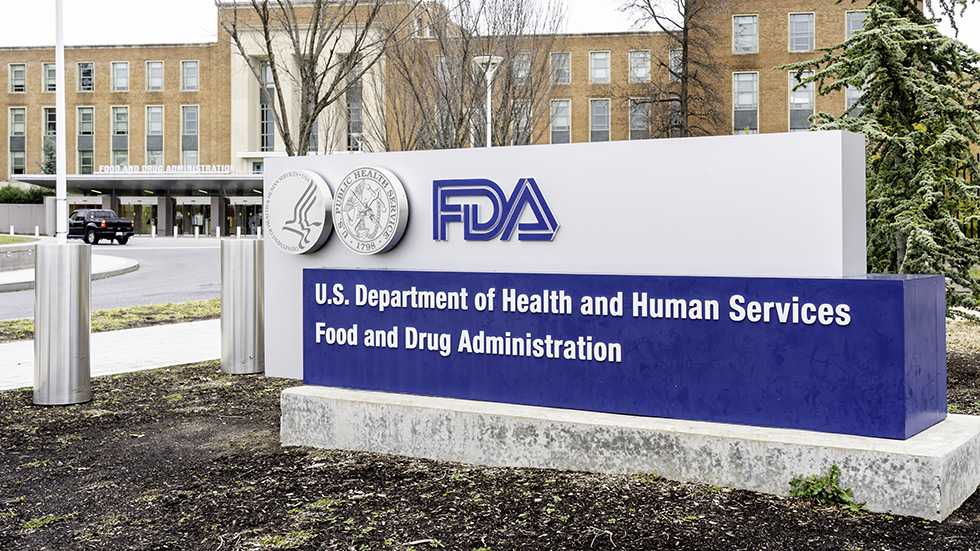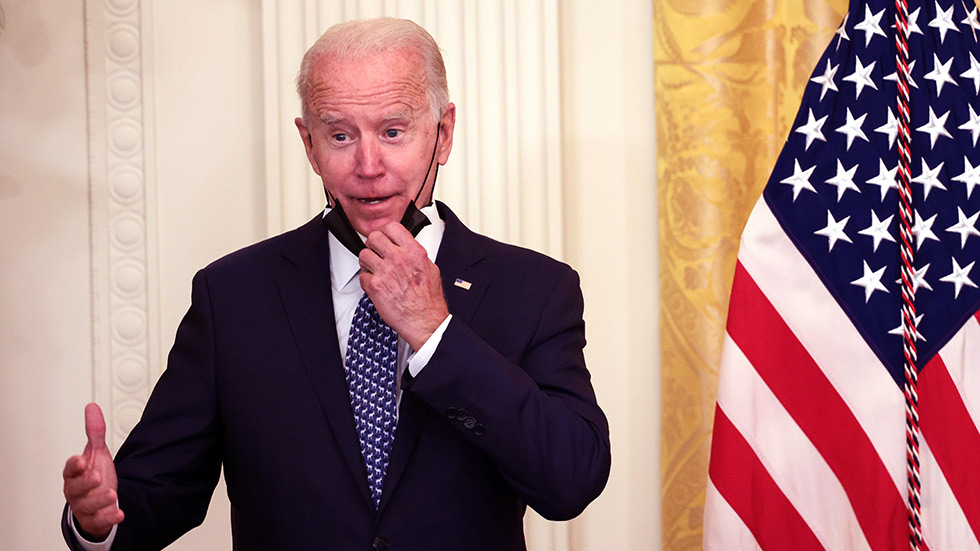Overnight Health Care — FDA panel backs boosters for some, but not all

FDA panel backs boosters for some, but not all

Welcome to Friday’s Overnight Health Care, where we’re following the latest moves on policy and news affecting your health. Subscribe here: digital-release.thehill.com/newsletter-signup.
Are we living in Jumanji? All of the National Zoo’s lions and tigers have been infected with COVID-19. And the zebras are still on the loose in Prince George’s County.
An FDA panel voted to recommend booster shots of Pfizer’s COVID-19 vaccine for people over the age of 65, as well as those who are at risk of severe disease — but only after voting against widespread boosters for everyone over the age of 16.
For The Hill, we’re Peter Sullivan (psullivan@digital-release.thehill.com), Nathaniel Weixel (nweixel@digital-release.thehill.com) and Justine Coleman (jcoleman@digital-release.thehill.com). Write to us with tips and feedback, and follow us on Twitter: @PeterSullivan4, @NateWeixel and @JustineColeman8.
Let’s get started.
FDA panel says yes to COVID boosters in older Americans, plus those at risk of serious disease

A key Food and Drug Administration (FDA) advisory panel unanimously voted to recommend the FDA authorize a third booster dose of Pfizer and BioNTech’s COVID-19 vaccine for people over the age of 65 as well as for other groups of people who are at high risk for COVID-19.
But the vote only occurred after the panel overwhelmingly voted against recommending the widespread use of boosters for everyone over the age of 16.
The targeted recommendation is much narrower than what the companies and top officials in the Biden administration had initially sought.
In a statement following the meeting, Kathrin U. Jansen, the head of Pfizer’s vaccine research and development, said the company will work with FDA to address the issues raised by the committee, “as we continue to believe in the benefits of a booster dose for a broader population.”
The meeting lasted all day, and the differing viewpoints offered by panel members could be a sign of the confusion ahead.
Ultimately, advisory panel members said they were concerned about the lack of safety data, especially for those on the younger end of the age spectrum.
What’s next: The FDA panel members did not vote to define who is considered high risk, but the panel members indicated they think the category ought to include health care workers as well as people with pre-existing conditions like diabetes, heart disease and obesity.
Should the FDA sign off on the recommendation, a Centers for Disease Control and Prevention advisory panel will meet next week to decide more details about who specifically should qualify for the boosters, and when they’ll be administered.
People with severely weakened immune systems are already eligible for a third dose, though the broader booster recommendation will only apply to the vaccine from Pfizer-BioNTech.
Left unanswered: What about everyone else? The panel did not address that. More than 67 million people have received the Moderna vaccine, and 14.5 million people received Johnson & Johnson. They’re not eligible yet, because the committee was only looking at the evidence from Pfizer and BioNTech. Moderna only submitted its evidence earlier this month, while J&J has yet to submit data. The company touted results in August and said it was working with regulators, but there hasn’t been much more information.
Biden brushback? The fact that the panel voted down the original recommendation is an unexpected setback for the Biden administration. Experts said it shows the process was rushed; the administration decided boosters would be available starting Sept. 20, but the data just wasn’t ready yet. The committee made clear it was independent from the FDA. The panel’s vote is not binding, so FDA doesn’t have to accept the results. But if the agency doesn’t, it would likely raise significant questions of political interference.
White House to host global COVID-19 summit next week

Next week will be a big one for the effort to vaccinate the world.
The White House announced Friday that it will host a global COVID-19 summit next week.
The virtual summit, to be held on Wednesday, coincides with the U.N. General Assembly.
More doses coming: The Washington Post reported Friday that the Biden administration is planning to buy hundreds of millions more doses of vaccine to donate to the world as well, though details have not been announced yet.
The U.S. could also seek to boost commitments from other countries at the summit.
White House press secretary Jen Psaki said in a statement that the U.S. would be calling for a “higher level of ambition” from participants on a range of topics, such as efforts to “vaccinate the world.”
Big picture: The moves come as the White House has been under pressure to do more to increase the global vaccination rate.
The White House has pointed to the 140 million vaccine doses it has already donated, and its previous announcement of over 500 million doses to be donated across this year and next. But experts have called for ramping up global vaccine manufacturing to produce more doses.
“While the Administration has already committed to donating 600 million doses worldwide, only 140 million have actually been donated. With 4.5 billion people unvaccinated globally and with the potential need for booster shots, the time for half measures is over. We need to be talking about billions of vaccines, not millions, and we need those vaccines today, not 6 months from now,” said Rep. Raja Krishnamoorthi (D-Ill.)
BIDEN ANNOUNCES FEDERAL SUPPORT FOR PATIENTS, ABORTION PROVIDERS IN TEXAS
The Department of Health and Human Service (HHS) announced on Friday several actions it plans to take to protect patients and abortion providers in Texas following a recently enacted abortion law in the state.
Earlier this month, the Supreme Court declined to block a Texas abortion law, which allows abortions to be banned once a “fetal heartbeat” has been detected, which often happens before a woman knows she is pregnant. Private citizens can sue those who they believe aided or performed the medical procedure, garnering $10,000 for each successful suit.
Since the Supreme Court ruling, the Biden administration has vowed to fight the measure.
Among the initiatives announced by HHS Secretary Xavier Becerra is additional funding for Every Body Texas, a nonprofit that distributes money to sexual and reproductive health care clinics throughout Texas.
Up to $10 million would also be given in grants to clinics that have seen a higher number of clients following the recently enacted Texas law in addition to other clinics across the country.
CDC study finds Moderna vaccine most effective against hospitalization

Good news for people who got the Moderna jab.
A Centers for Disease Control and Prevention (CDC) study released Friday found the Moderna vaccine to be the most effective against COVID-19 hospitalization, although all three vaccines provided “substantial protection.”
Researchers calculated Moderna’s vaccine effectiveness against hospitalization was 93 percent, while the effectiveness of the Pfizer-BioNTech and Johnson & Johnson vaccines was 88 percent and 71 percent, respectively.
“Although these real-world data suggest some variation in levels of protection by vaccine, all FDA-approved or authorized COVID-19 vaccines provide substantial protection against COVID-19 hospitalization,” the report said.
The study involved more than 3,600 adults who were hospitalized at 21 U.S. hospitals across 18 states between March 11 and Aug. 15. Out of those, 1,682 received positive COVID-19 test results, while the others were considered controls. Immunocompromised adults were not included in the research.
Decline in effectiveness: Researchers documented a larger decline in effectiveness among Pfizer-BioNTech recipients, which contributed to the lower overall vaccine effectiveness. The Pfizer shots were considered 91 percent effective between 14 to 120 days after the second shot and just 77 percent after 120 days.
THREE ARRESTED FOR ALLEGEDLY ASSAULTING NYC HOSTESS WHO ASKED FOR COVID-19 VACCINE PROOF
Three women have been arrested and charged for allegedly assaulting a New York City restaurant hostess after she asked the group to provide proof of vaccination against COVID-19 under the city’s new vaccine mandate for indoor public spaces.
The New York City Police Department (NYPD) told The Hill that in the late afternoon Thursday, officers responded to a 911 call regarding an assault outside Carmine’s Italian restaurant on Manhattan’s Upper West Side.
Police said that the hostess, a 24-year-old-woman whose name has not been released publicly, “reported that she got into a dispute with three unknown females after she requested to see their Covid-19 vaccine card.”
“The individuals struck her multiple times with closed fists,” police added, noting that the hostess “suffered bruises and scratches to her face, chest and arm” and that her necklace broke during the altercation.
Footage obtained by NBC New York and shared on social media appeared to show the women crowded around the employee outside the restaurant, almost knocking over the hostess stand as staff and bystanders attempted to intervene.
WHAT WE’RE READING
- What will the Covid-19 booster rollout look like? Public health groups plan as they await details (Stat)
- Four patients, two dialysis machines: Rationing medical care becomes a reality in hospitals overwhelmed with covid patients (Washington Post)
- India boosts its Covid vaccine drive with 25 million shots given on Modi’s birthday. (New York Times)
STATE BY STATE
- COVID-19 hospitalizations in Florida decline sharply in past 2 weeks (Spectrum News)
- Maine sees record COVID-19 patients in ICUs as total hospitalizations top 200 (Bangor Daily News)
- Idaho’s struggle to keep up with Covid-19 surge puts pressure on Washington state hospitals (CNN)
That’s it for today, thanks for reading. Check out The Hill’s healthcare page for the latest news and coverage. See you Monday.
Copyright 2023 Nexstar Media Inc. All rights reserved. This material may not be published, broadcast, rewritten, or redistributed.

